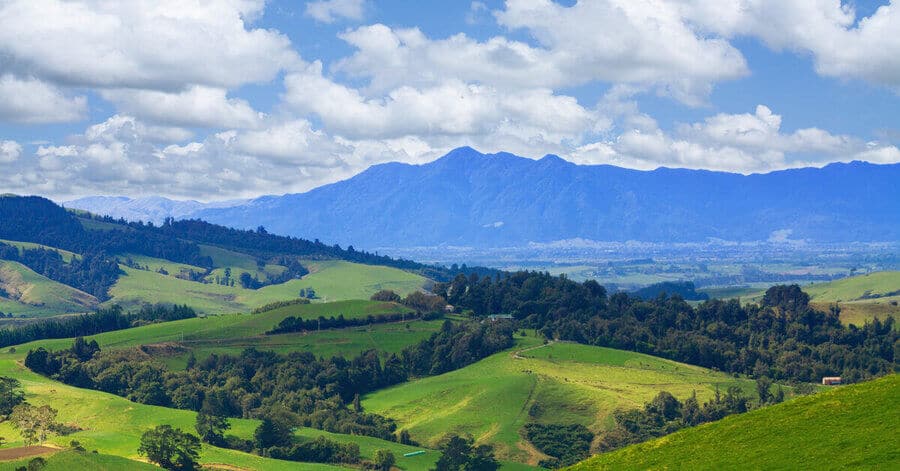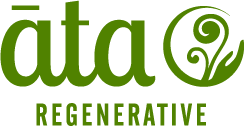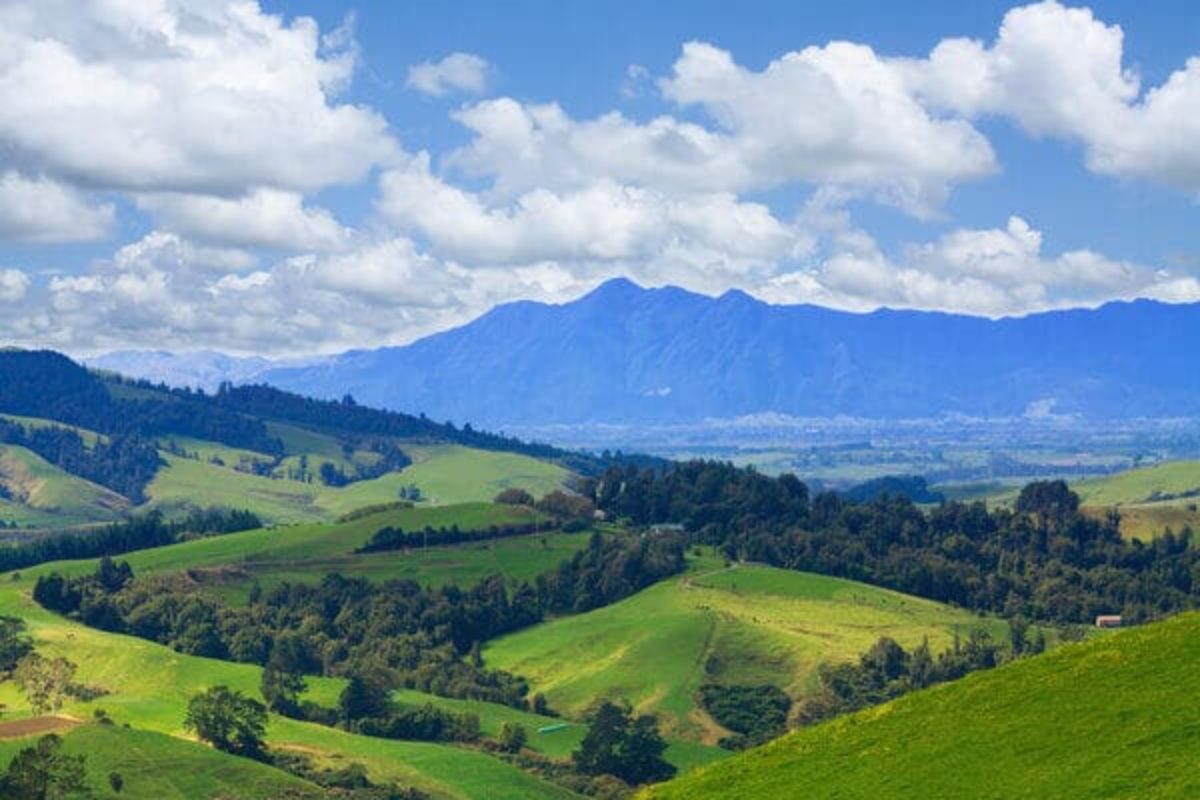PROJECT:
SOUTH WAIKATO REGENERATIVE COLLABORATION

Āta Regenerative is leading a regional project in South Waikato district of New Zealand with partners from Local Government, Universities, Iwi authorities, environmental organisations, and sustainable business groups.
The first step was to create a framework for cross-sector collaboration – no easy task considering the wide range of people, institutions, and organsiations involved – but with issues such as the impact of climate change, water quality, health, poverty, housing, and social inequity, it was in everyone’s best interests to be a part of the discussion.
The main focus of the collaboration was the ongoing health of the region, delivering greater resilience and creating opportunities for new growth, development, and employment.
Then Covid struck.
The impact of the pandemic on the region has been severe, with economic recession both regionally and nationally. Looking ahead though, the agriculture industry is expected to recover faster than other sectors, but recovery needs to be based on a regenerative approach and the emergence of new opportunities.
Cross-sector collaboration, including agriculture, tourism, manufacturing, business, education, health, and community, is the key to creating the conditions to resolve these issues. Collaboration provides a common objective of health for the region, its economy, environment, and its estimated quarter-million residents.
How it all works
The Collaborative is all about active participation of all its members working together to create vibrant, healthy communities for the long-term sustained health of the region and its people.
This process empowers all stakeholders to be informed decision-makers, active communicators, and ardent collaborators to ensure the underlying health of the collaborative is a solid foundation to build upon.
By using the Regenerative Framework developed and implemented by nRhythm, the Collaborative can monitor the impact of the project on ecological and social health over time.
The ecological health of farms is monitored using a tool developed by the Savory Institute. The Ecological Outcome Verification (EOV) creates an Ecological Health Index for each farm/area, which can be measured each year to show the land is regenerating.
The Organisational Health Index monitors the social aspect side of things, including organisational and community health, using similar methods.
The result is sustainability, growth, and true transformation of areas, communities, and organisations.
Objectives of the project
The purpose of the framework is to bring about permanent and transformational change in the region for the betterment of all. From developing and building infrastructure to providing education and training, these changes are expected to ease pressure on the region’s District Health Boards as well as reducing dependence on the welfare system.
Farming
With farming, the aim is to move away from the current industrialised model to a regenerative approach. This will reduce carbon loss, damage to waterways, and soil irrigation, while supporting climatic, environmental, and economic health.
Food
The project aims to create new food industries for domestic and export markets by using regenerative farming practices. This will appeal to consumers who are more aware of the impact of food production on the environment, as well as those wanting healthier, ethically-sourced food.
Tourism
The growth and promotion of locally grown, high-quality produce linked to healthy production practices can help boost the domestic tourist market, which has taken a back seat to international tourism.
Forestry
Lack of quality housing is identified as a major social health issue within the South Waikato region. The project aims to use the forestry resource to support greater housing construction providing greater revenue to landowners, create new local jobs creation, and support emerging businesses in associated industries.
Education
The project will also provide meaningful education and career training for students and workers of all ages. As the Collaborative develops and becomes more successful, this leads to more jobs, opportunities, and growth in all sectors in the region. This new growth will require more people to sustain it, leading to a cycle of training and employment.
Working together for the common good
The Regenerative cross-sector Collaborative framework is designed to create healthy, vibrant, and resilient communities through local participation.
By addressing the impact of climate change, water quality, health, poverty, housing, and social inequity, the collaborative can improve the lives of hundreds of thousands of people in the Waikato region.
Because of the nature of the framework, it can be rolled into other regions of New Zealand using the same strategies, creating a better future with improved health outcomes, increased environmental results, and thriving communities.
The project is well underway and going well, and of course, we will continue to report as we reach important milestones in this project.
Ata Regenerative are at the forefront of regenerative agriculture practice in New Zealand. With 17 years working in the regenerative space and as the only EOV provider in the country, Ata Regenerative can assist with your transition to farm practice that focuses on the regeneration of soils, increased productivity and biological diversity, as well as economic and social well-being. To find out more, contact us here.



